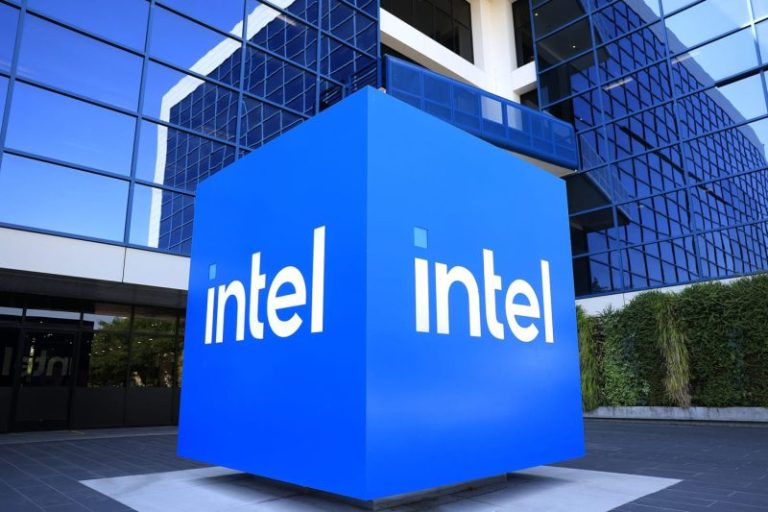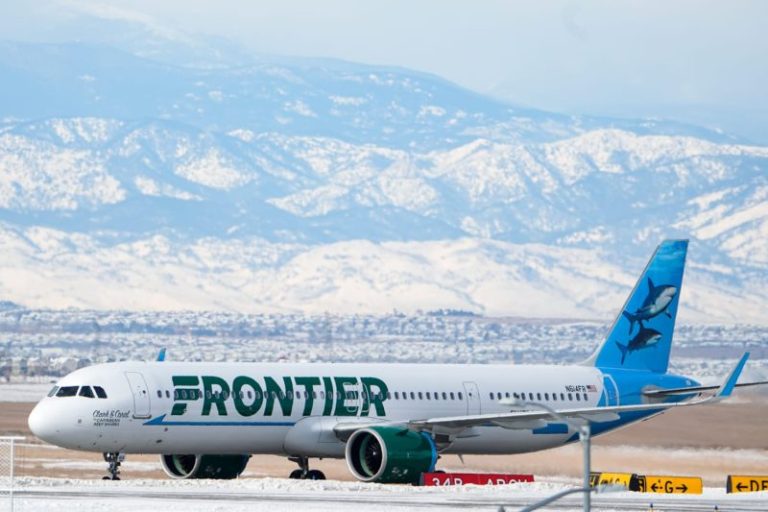U.S. taxpayers are now the largest shareholders in Intel. What comes next isn’t so clear.
The Trump administration announced Friday that the government had taken a 10% stake in the California-based computer chipmaker, which has fallen behind rivals Nvidia and AMD in the artificial intelligence race. Over the past five years, Intel’s share price has declined more than 50%.
The administration has not provided any details about when or under what circumstances it would sell the Intel shares — or whether it would sell them at all. Nor did it say whether the United States would benefit from any dividends, although Intel has not paid out any since last year. The administration does not plan to take any board seats and has said it will vote against the company only in “limited” circumstances.
While Commerce Secretary Howard Lutnick suggested Friday that national security was a key motivator for taking the stake, President Donald Trump focused Monday more on the prospect of financial gains.
“I will make deals like that for our Country all day long,” Trump said on Truth Social. “I love seeing their stock price go up, making the USA RICHER, AND RICHER. More jobs for America!” he added.
Intel’s shares have climbed about 4% since the transaction was announced. Some experts said that while there is a potential upside to the agreement, it represents another norm-shattering expansion of presidential authority by Trump into the business world — and most likely not the last.
Already, the Trump administration has taken a “golden share” in Japan’s Nippon Steel as part of a deal granting approval to that company’s bid for U.S. Steel and giving the government a say in future Nippon transactions. Last month, the Defense Department announced it had purchased $400 million in rare earth miner MP Materials, making it the company’s largest shareholder. The White House also plans to take a cut of the sales that chipmakers Nvidia and AMD make to China.
Trump told reporters Monday that he hopes to see “many more” deals like Intel’s, adding that nobody “realizes how great it will be.” Kevin Hassett, director of Trump’s National Economic Council, said similar deals could help form the basis of a sovereign wealth fund, an idea that the administration had floated earlier as a way of giving U.S. taxpayers direct stakes in companies but had yet to fully develop.
“At some point there’ll be more transactions, if not in this industry, in other industries,” Hassett said on CNBC.
The U.S. stake in Intel does not amount to a complete government takeover. While the federal government has assumed total control of private corporations before, such incidents have usually happened during times of crisis — and not with the direct intention of trying to play the markets.
“He’s doing all this in a spooky, controversial way,” said Clyde Wayne Marks, a fellow in regulatory studies at the Competitive Enterprise Institute, a libertarian think tank. “Right now there is no crisis.”
President Woodrow Wilson nationalized railroads, as well as the telegraph, telephone, radio and wireless stations, during World War I. Nearly two decades ago, the government bailed out a host of private firms during the 2008-09 global financial crisis.
While the bailout involved holding corporate assets on the U.S. government’s books with the goal of returning earnings to taxpayers, there was never any serious intention to own them over the long term. And a Government Accountability Office study concluded in 2023 that the program ultimately came at a net cost of about $31 billion.
The U.S. government has long provided subsidies to private corporations in the form of loans and grants, to varying degrees of success. Two high-profile examples came during the Obama administration, when the Energy Department provided loans to a solar power company called Solyndra and to electric vehicle maker Tesla. Solyndra ultimately went bankrupt, while today Tesla is worth $1.2 trillion on the stock market.
Some have argued that the United States would have benefited from having taken a stake in Tesla. Yet at the time Tesla received the loan, in 2010, beliefs about the free market and the need to limit the government’s role in it prevailed not just among Republicans, but among Democrats, as well, experts say.
“Our system has not typically been built that way — it’s not how free enterprise is typically run,” said Dan Reicher, a former Energy Department official under Presidents Bill Clinton and Barack Obama. “History has proven that the more free-market approach, making the bottom line the bottom line for the companies running these operations, is a smarter way to go.”
Intel’s fortunes have sagged. Its manufacturing segment lost $3.2 billion in the second quarter, and last month it said it would lay off 15% of its workforce by year’s end while canceling billions in planned investments and delaying the completion date for a $28 billion chip plant near Columbus, Ohio.
In a securities filing Monday, Intel warned investors of the potential risks involved in the U.S. investment, among them that the arrangement may actually limit its ability to secure grants down the road, depending on its future performance. It could also harm international sales and make Intel subject to additional regulations and restrictions, both at home and abroad, it said.
On Monday, Trump was asked whether the Intel investment represented a new way of doing industrial policy.
“Yeah. Sure it is,” Trump said. “I want to try to get as much as I can.”


